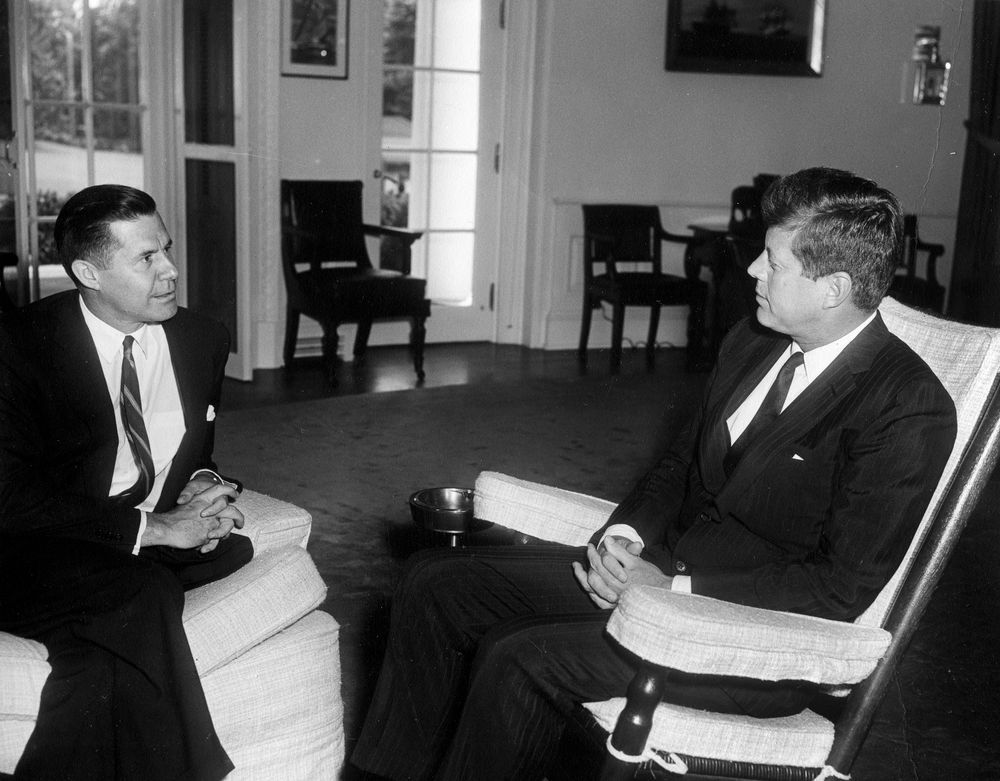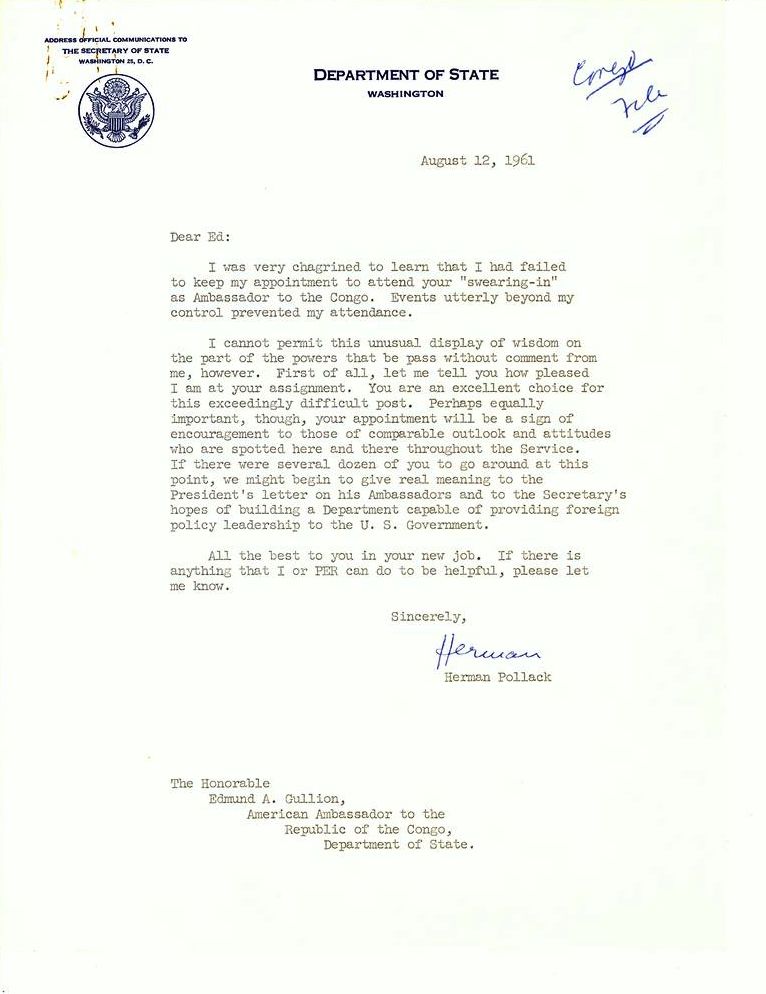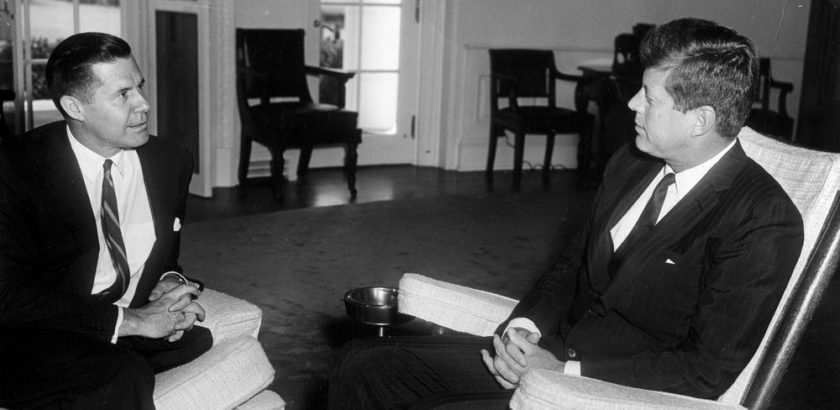by Christina Fitzpatrick, Processing Archivist
We are pleased to announce the opening of the Edmund A. Gullion Personal Papers. Gullion had a lengthy and distinguished career in the Foreign Service and was U.S. Ambassador to the Republic of the Congo (Leopoldville) from 1961 to 1964.

AR6747-A. President John F. Kennedy Meets with United States Ambassador to the Republic of Congo (Leopoldville) Edmund A. Gullion, August 18, 1961. View more about this photo here.
Edmund Asbury Gullion (1913-1998) joined the State Department in 1937 and crisscrossed the globe on diplomatic assignments for the next three decades. He seemed to have a knack for pulling assignments in international hotspots. During World War II, Gullion witnessed German troops advancing into both Greece and Finland. He was stationed at the American Embassy in Saigon from 1949 to 1952, during the middle of the war in Indochina. And his term as ambassador was defined by the “Congo Crisis,” a five-year civil war surrounding the attempted secession of two of the country’s provinces. As the United States and the Soviet Union supported different sides in the dispute, the Congo was widely considered a frontier in the Cold War. Upon Gullion’s appointment to the Congo, many of the congratulatory messages he received also noted the difficulty of the assignment.

Letter to Gullion from Vice President Lyndon B. Johnson, July 24, 1961. View the entire folder here.

Letter to Gullion from Herman Pollack, August 12, 1961. View the entire folder here.
Due to his extensive experience in the Foreign Service, Gullion frequently advocated for allowing the diplomatic corps to play a larger role in foreign policy decisions, as he stated in an oral history interview with the Association for Diplomatic Studies on June 2, 1988:
I believe that the President of the United States should know his Ambassadors, at least as well as he knows his generals and admirals, or his cabinet members. I believe that the Foreign Service has an active part to play in the formation of policy. It’s too easy and dismissive to say that it is the executor of policy and policy is made in Washington where all the strings come together. Of course, this is where the fountainhead of policy is but the fountain has deep sources. The Foreign Service officer who has lived with many peoples, encountered many situations, is in the best position to know what can and cannot work in the areas to which he is accredited. I think that he should have constant and frequent opportunities to contribute to policy, to comment on policy.
After leaving the Foreign Service at the end of his ambassadorship, Gullion was named Dean of the Fletcher School of Law and Diplomacy at Tufts University, where he coined the term “public diplomacy” and sometimes clashed with student activists over the Vietnam War.
For more information on the Edmund A. Gullion Personal Papers, please see the detailed collection guide on our website.
